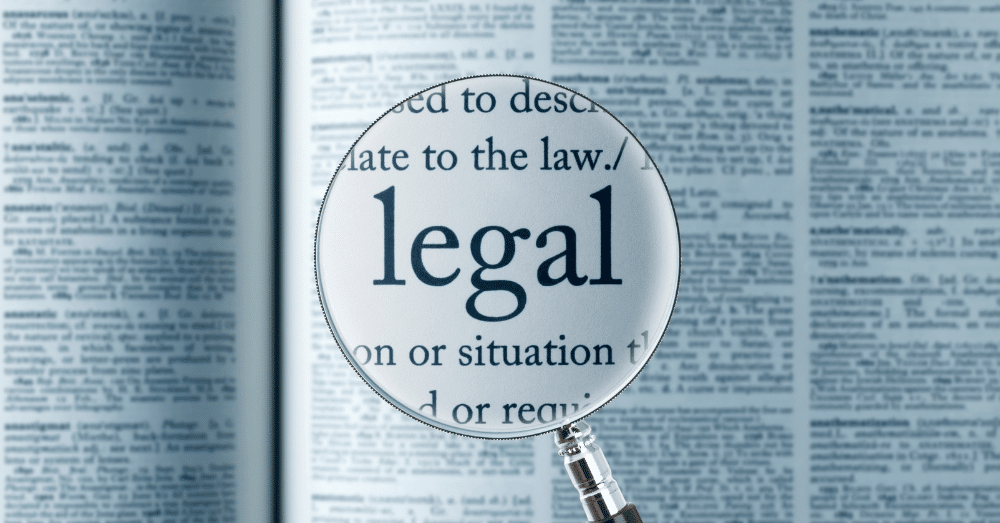
Is ghostwriting illegal?
This question sparks debates and controversies about ethics and legality over an often misunderstood practice.
Will hiring a ghostwriter put you at risk?
What are the repercussions, if any, for using ghostwriting services? In the following article, you’ll find answers to these burning questions and why understanding the legalities matters-most of if you’re considering using or offering ghostwriting services.
Keep reading to uncover the facts you need to know.
What is ghostwriting?
Imagine you’re reading a bestselling book, but the author on the cover didn’t write a single word. That is ghostwriting in action! When one hires a writer to prepare a book, article, or speech, that person gives their name to the content.
Meanwhile, the ghostwriter remains hidden and unseen. Ghostwriting is quite common and useful in many ways, yet it raises quite interesting legal and ethical problems, which we will discuss next.
Is Ghostwriting Legal?
Yes, ghostwriting is legal in most content contexts, such as books, blogs, or whatever. The arrangement’s legality becomes sound whenever the author and ghostwriter sign proper agreements.
These would settle the terms of who would be considered an author and who is responsible for payment. However, when the context is academic, this can pose a legal issue since ghostwriting is normally forbidden in schools.
Is Hiring a Ghostwriter Illegal?
Hiring a ghostwriter is not illegal in most cases. Most professionals, businesses, and authors hire ghostwriters to help put their ideas into words. However, to avoid confusion, an agreement has to be mutual on who owns the work.
Therefore, both parties must have clear ideas of who owns what. However, using a ghostwriter could have legal or ethical implications, especially in academic or legal writing, where it could seem disingenuous. Let us now discuss a few ethics surrounding ghostwriting and when this would be illegal.
What are the ethical considerations in ghostwriting?
To be honest, people are concerned about the ethics of ghostwriting. For instance, someone may hire another person to write their book but need to list them as an author; by some standards, this is a lack of transparency if it is personal.
Still, using a ghostwriter for speeches or business writing is usually acceptable, depending on the material and what the audience is being led to anticipate.
Furthermore, copyright law and related contracts define ethics. Let’s move on to discuss the legal element surrounding ghostwriting.
Is Ghostwriting Ethical According to Copyright Laws?
Under copyright law, ghostwriting is perfectly valid if ownership of the work is assigned through a contract. For example, when a writer writes a book and formally assigns rights to the client, the client legally owns it.
But sometimes, it becomes confusing, especially in unclear cases on agreements. Last, we’ll discuss other legal implications that ghostwriting carries.
What are the Legal Issues with Ghostwriting?
- Intellectual Property Issues: If the misuse of ghostwritten content is not clearly outlined beforehand, it may cause ownership controversies.
- Breach of Contract or Confidentiality: Since there is little in terms of contracts, the dispute easily escalates to litigation.
- Misrepresentation in Certain Fields: Academic ghostwriting is unethical and has severe punishments.
For example, clear agreements showing who owns the works and whose secret they are can prevent these problems.
What are the Ethical Guidelines for Ghostwriting?
- Transparency: Clearly define the ghostwriter’s role and disclose this to relevant parties.
- Honesty: To maintain credibility, one should be honest and ensure that all claims made in the written work are correct.
- Maintain confidentiality: One way to respect the client’s privacy is to protect their privacy and sensitive information related to the process.
- Attribution: Acknowledge source contributions appropriately, if necessary, to adhere to the ethics.
Similarly, these guidelines help to bring trust and integrity into ghostwriting.
What is a Ghostwriter Agreement?

Therefore, a ghostwriter’s agreement is a legal paper outlining the engagement terms between the client and the ghostwriter.
Thus, an agreement must precisely set out what both parties expect concerning responsibility. Some of the essential elements involved include:
- Work Expectations: Extensive outputs describing what will be produced.
- Deadlines: Specified deadlines for completing a project.
- Payment Terms: Specify the fee and payment schedule.
To say it in simpler words, this legal agreement on ghostwriting protects both parties from possible controversies.
Are Ghostwriting Agreements Legally Binding?
Yes, ghostwriting agreements are legally binding, provided they are written and signed by both parties. This contract specifies pretty clear terms about the scope of work, deadlines, and payment that may be enforced in court should it come to that.
Therefore, a well-drafted agreement is indispensable to protecting the interests of the ghostwriter and the client. Of course, it is also important to understand obligations toward a ghostwriting contract term.
What Does a Ghostwriter Agreement Typically Include?
Now that we are aware of how much it does matter, here’s a specific breakdown of what is included in a ghostwriter agreement as follows:
1. Scope of work: Description of the project, especially topics to be discussed and expected output
2. Timeline and deadlines: Specific dates for milestones and the final deadline
3. Payment terms and conditions: Clear-cut definition of the fees, payment schedule, and additional costs.
4. Rights and Ownership: Explanation of who retains rights over the work after completion.
5. Confidentiality: Arrangement protecting sensitive information exchanged during the project.
What are the Key Legal Issues Associated with Ghostwriting Agreements?
- Breach of Contract: Failure to meet terms agreed in a contract can often become the underlying basis for a dispute in a court of law.
- Intellectual Property Rights Disputes: There may also be concerns about intellectual property rights in the final work, especially if ownership rights are not defined.
- Payment Disputes: Disputes regarding the time of payment or ghostwriting fees agreed can lead to litigation.
- Breaches of confidentiality: Confidential information is shared without one’s consent, which can have severe legal implications.
On the other hand, with any agreement, such issues may be addressed beforehand to prevent them. Equally, understanding these ghostwriting legal concerns contributes to smooth collaboration.
What are the Common Terms Found in Ghostwriting Agreements and Contracts?
In any ghostwriting agreement, one should know the most prominent terms of law.
- Termination Clauses: These are conditions whereby either party can end the agreement.
- Revisions Policy: States how many revisions are accepted, within what timeframe, and the process involved.
- Liability Limitations: Statements given to reduce the liability of the ghostwriter for issues arising from the work.
- Copyright Transfer: Details regarding a change in copyright ownership from the ghostwriter to the client.
Likewise, These are the ghostwriting terms of the contract that help set expectations.
Academic Ghostwriting: Illegal or Unethical?

Academic ghostwriting is often viewed as unethical and illegal, as it violates the principles of academic integrity. Many educational institutions have strict policies against this practice, seeing it as a form of dishonesty that undermines the value of genuine scholarship.
In contrast, legitimate collaboration and tutoring are generally accepted. As we consider the implications, it’s clear that academic ghostwriting raises significant ethical and legal concerns.
What Legal Concerns Arise in Academic Ghostwriting?
- Academic Dishonesty Penalties: Students are often expelled from school for any instance of ghostwritten work.
- Legal Action by institutions: The institutions can charge ghostwriters and the clients for breach of contract.
- Reputational Damage: This may cause reputational damage for students and writers since the latter’s prospects will be adversely affected.
In the same way, legal issues surrounding ghostwriting also reflect the risk-possibility. Thus, having an idea of such issues would be important for a student considering using academic ghostwriting.
What are the Legal and Ethical Boundaries in Freelance Ghostwriting?
The freelance ghostwriting aspect is very important, legal, and ethical. Making the contract clear highlights rights and responsibilities, allowing all parties to know what they are obliged to do.
Ethically speaking, honesty and transparency about one’s position as a ghostwriter are basic. For this reason, clear agreements can prevent emerging disputes.
Neglecting such principles leads to more serious legal implications and ethical dilemmas when it comes to ghostwriting.
Is Ghostwriting Worth the Ethical and Legal Considerations?
So, the benefits of ghostwriting against certain ethical and legal concerns have to be considered, mainly the clear contract, due to which no disputes arise.
Still, honesty and transparency ensure integrity, growth possibilities, and creative collaboration.
Certain risks, such as academic dishonesty and reputation damage, should be mentioned. All in all, ghostwriting is legal and ethical if applied appropriately, but for the writer and client, this is an opportunity that is afforded.
Conclusion
Ultimately, navigating this world requires knowledge of its legal and ethical dimensions. Many wonder if ghostwriting is illegal. Ultimately, it all depends on clear communication and well-defined agreements.
For TheUSWriter, we always put your needs first and uphold industry standards, making us a trustworthy partner in your writing journey. If you’re searching for reliable ghostwriting services, you can count on us to deliver quality and integrity every step of the way.

1 comment on “Is Ghostwriting Illegal? Understanding the Ethics and Legal Aspects”